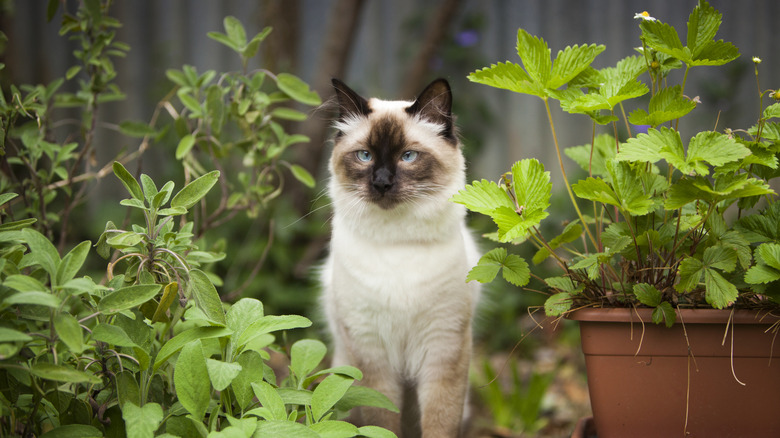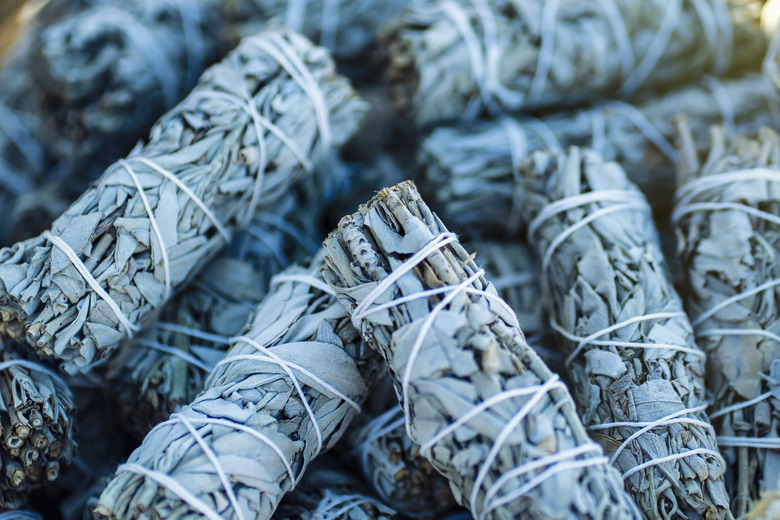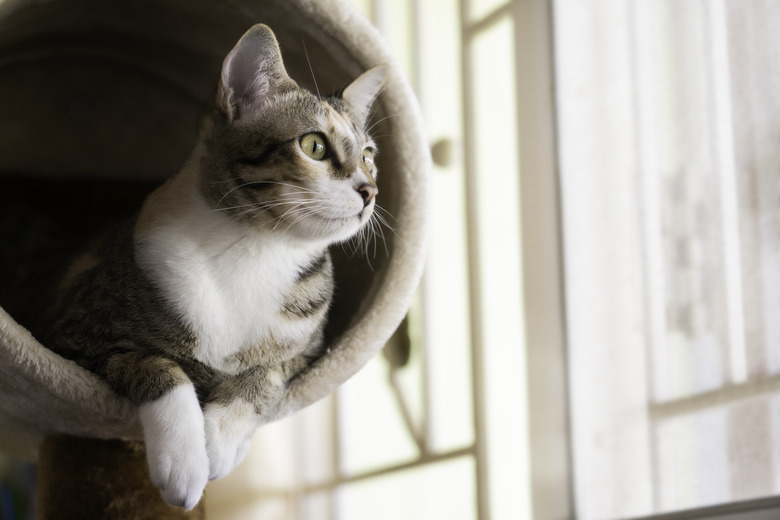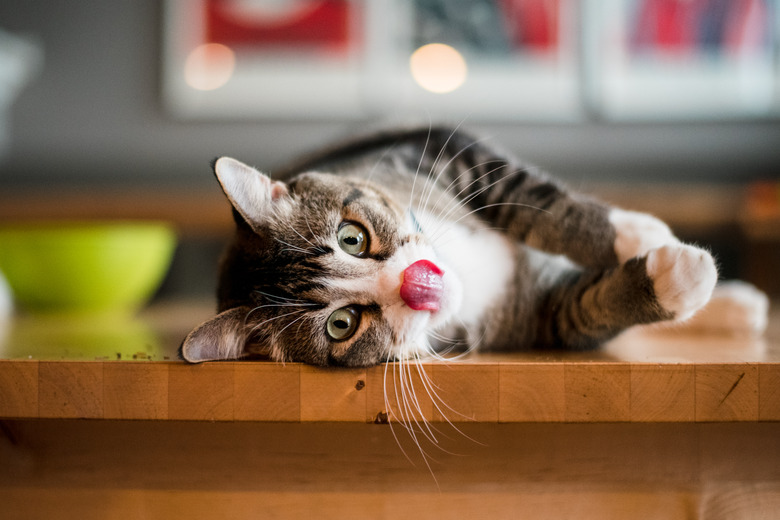Is Burning Sage Safe For Cats?
Sage is known for its pleasant aroma, and some people also believe the herb has metaphysical properties, lighting bundles of it to cleanse a new space, banish negative energy, or promote healing and clarity. However, cat owners often ask if they should avoid burning sage near their pet. That's a good question given that many herbs are toxic to cats. However, sage is rarely worrisome when it comes to using it in a house with felines.
What is sage?
Sage, or Salvia officinalis, is an herb in the mint family (the mint family also includes catnip and oregano), and it comes in a few varieties. Common sage is used in recipes and medications, while another type of the herb, white sage, is bundled for burning.
Can cats eat sage?
Yes, cats can eat sage. This herb is safe for cats in the garden, so plant it without concern. Sage is not harmful to felines if ingested in small quantities, and the American Society for the Prevention of Cruelty to Animals (ASPCA) Animal Poison Control Center lists it as nontoxic for felines.
If a cat eats a very large quantity of sage leaves, they might experience stomach upset, vomiting, and diarrhea, so it is still a good idea to monitor your cat when they have access to sage plants, especially if they are known to chomp on houseplants or other greenery.
Is burning sage safe for cats?
Yes, it is generally safe to burn sage around cats. The smoke from burning sage is not more harmful than burning a pet-safe candle or incense. However, cats with respiratory conditions, like asthma, might find the smoke irritating. You also need to be wary of a curious cat singeing their paws or batting burning sage out of its container. Keep a close eye on your cat if you are burning sage in their vicinity, and if you have any concerns about your cat's respiratory system, you should consult your veterinarian before burning sage near your pet.
How to burn sage near cats
Sage is burned loose in a fireproof bowl or tied in a bundle. Ignite the sage and then blow it out to release its incensed smoke. Hold the burning sage over a burn bowl to catch embers. Slowly wave the burning sage around the room. When doing a smudging ceremony, you'll open windows and doors to let out negative energy.
If you're burning sage for the pleasant smell alone, keep in mind that without circulation, such as an open window, polycyclic aromatic hydrocarbons — chemicals that are harmful to health — can rise to levels similar to those in the home of a smoker. This can result in cats suffering respiratory irritation, especially if they have preexisting conditions, such as asthma or bronchitis.
Is sage safe for cats?
Yes, sage is generally safe for cats. However, if your furry friend starts sneezing or has watery eyes while you are burning sage, immediately move the cat to another well-ventilated room when you are burning sage. A cat's upper-respiratory tract is more sensitive than humans, so it's best they are not near smoke. If you keep your cat in the room with you, keep a careful eye on the sage to make sure your cat's curiosity doesn't result in singed paws from hot embers getting knocked out of the burn bowl.
Herbs toxic to cats
Sage is nontoxic to cats, so don't worry if your kitty nibbles a few leaves while you're setting up. However, that is not true of all herbs used for similar purposes, and anything eaten in large enough quantities can be harmful. Essential oils, even sage essential oil, are very dangerous for cats because cats cannot tolerate the ketones and phenols in these products. In extreme cases, liver failure can result.
Herbs toxic to cats on their own include chives, garlic, St. John's wort, chamomile, cannabis, and lemon grass. Even plants considered nontoxic can cause gastrointestinal upset and vomiting but not a condition that is life-threatening. If you suspect that your cat has ingested a toxic plant, you should contact your veterinarian immediately.
The bottom line
Sage is usually safe for felines, including if they ingest the herb or if they are nearby when sage is being burned. However, pet owners should use caution if their cat has known respiratory issues, as sage smoke might exacerbate the problem. Cats should also not be allowed to eat large amounts of sage because large amounts can cause stomach upset. Always consult with your veterinarian if you have questions or concerns regarding your cat's health or safety.



